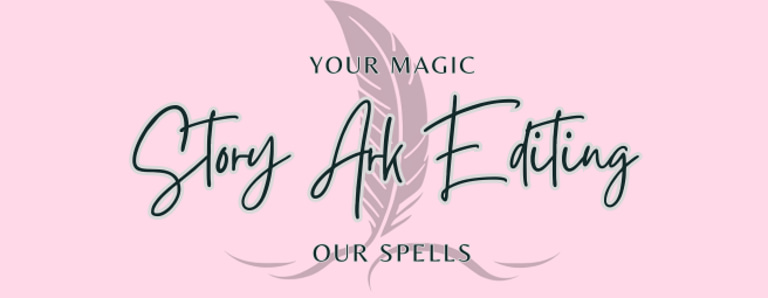
How to Give Your Manuscript a Makeover Without the Financial Hangover: Budget-Friendly Editing Tips for Authors
Wondering how to give your manuscript a makeover without breaking the bank? In "How to Give Your Manuscript a Makeover Without the Financial Hangover," discover budget-friendly editing tips tailored for authors seeking quality editing services. This guide offers practical strategies, from utilizing beta readers to exploring payment plans, helping you achieve a polished manuscript without financial stress. Perfect for indie authors on a budget, this blog empowers your writing journey while keeping costs manageable!
Kriti Tripathi
10/18/20248 min read


How to Give Your Manuscript a Makeover Without the Financial Hangover: Budget-Friendly Editing Tips for Authors
Let’s face it: hiring an editor can feel like checking your bank account after a night out—surprising, terrifying, and possibly leading to a cold sweat. You might feel like you’ve been hit by a bus after seeing those editing fees and start to wonder how you’ll ever afford the manuscript makeover you so desperately need. But fear not! You can still achieve that literary glow-up without the financial hangover that leaves your wallet gasping for air.
In this blog, we’ll dive into practical tips and hacks to help you get quality editing without breaking the bank. Whether you’re a seasoned author or just starting out, you’ll find ways to make your manuscript shine without giving your budget an emotional meltdown.
So, grab your favorite cup of coffee (or tea; we don’t judge), settle in, and let’s get to saving!
1. Beta Readers and Critique Groups: Your Editing BFFs (But Not the Whole Squad)
Think of beta readers and critique groups as the first dates for your manuscript. They’re the friendly folks in your writing journey, ready to share their thoughts, spot major flaws, and maybe boost your confidence (or bring you crashing back to reality, like a surprise party that flops). But here’s the deal: beta readers aren’t professional editors. Their feedback is helpful, but it’s not a ticket to skip the editing process altogether. Especially for first-time authors, trusting beta readers can be risky—like asking your friends if those neon green pants you just bought look good. They might say “yes” just to be nice, but deep down, you know they’re not convinced.
The Upside: Fresh Eyes on Your Manuscript
Beta readers are like your book’s cheerleaders, waving pom-poms and giving you that first reaction. They’ll tell you when a scene drags longer than a family road trip with a restless toddler, when a character needs more sass, or when your plot twist leaves them breathless (or confused). Think of them as your book’s first audience, helping you figure out if your story is hitting the mark or if it’s more like a cat stuck in a tree, meowing for help.
The Catch: Can You Really Trust Them?
Now, here’s the catch: trusting beta readers as a first-time author can be like picking a restaurant based on random online reviews—you might find some gems, but you’ll also stumble upon some bizarre opinions that leave you scratching your head. Let’s be real: beta readers aren’t professional editors, and their feedback can be hit or miss. One moment, you’re riding high on compliments, and the next, you’re left scratching your head, wondering if you sent them your rough draft instead of the polished gem. In all honesty, some beta readers might be multitasking, so they might miss the deeper meanings too.
Free or Paid Beta Readers?
You might be wondering, “Should I pay for a beta reader?” Here’s my two cents: if you’re considering paying for someone to read your manuscript, just make sure you know exactly what you’re getting in return. Clarity is key! If the feedback they offer doesn’t quite measure up to what you're seeking, it might be wiser to channel those funds into a professional manuscript evaluation instead. After all, your story deserves to shine, and investing in quality feedback can make a world of difference.
If you prefer the beta reader route, think of it like swapping snacks at lunch: “You read my draft, and I’ll read yours.” Just remember to keep things safe and sound by having everyone sign a friendly NDA. Trust me, you don’t want your plot twists being discussed at the next book club meeting.
And to keep feedback neat and tidy, share your manuscript in read-only formats—hello, Google Docs!
Bonus Hack: Here’s a little extra tip for you: create a questionnaire for your beta readers. It’ll help you keep their feedback organized, just like your closet after a good spring cleaning (you know, when everything actually has a place). Plus, you can guide them to focus on the parts you’re most worried about, making sure your manuscript shines like a diamond in the rough!
2. Know Your Editing Needs: Identifying What Your Manuscript Craves
Before you dive headfirst into the editing pool, take a moment to figure out what kind of editing your manuscript actually needs. It’s like ordering pizza; if you don’t know whether you want pepperoni or pineapple, you might end up with something you didn’t want at all.
Types of Editing to Consider:
Developmental Editing: The big-picture stuff—filling plot holes, refining character arcs, and adjusting pacing. It’s like building a sturdy base for the beautiful story you’re creating.
Line Editing: This is where your writing really starts to shine. A line editor polishes your style, enhances sentence structure, and helps your voice resonate.
Copyediting: Getting into the nitty-gritty! A copy editor corrects grammar, punctuation, and ensures consistency throughout. It’s the final touch before the big reveal.
Proofreading: Your manuscript’s last line of defense, catching typos and minor errors that might have slipped through. It’s the cherry on top of your manuscript sundae!
For a deeper dive into the types of editors and how to choose the right one for you, check out my blog, Finding Your Editorial Soulmate: How to Find the Right Editor for You and Your Manuscript.
By knowing exactly what you need, you can communicate effectively with potential editors and avoid any miscommunications (and disappointments) later on. So, take a moment to reflect: what does your manuscript really need to shine? You deserve to give it the best chance at success, just like you’d want your favorite book to be the best it can be.
3. Shop Around for Samples: Don’t Be Afraid to Ask for a Taste Test
As you wouldn’t commit to a romantic relationship without a few dates, similarly, you shouldn’t jump into a contract with an editor without testing the waters first. Many editors offer sample edits, which are a great way to assess their style and approach without the pressure of a long-term commitment.
Sample Edits: A small section of your manuscript can be edited for free or at a reduced rate, giving you a sneak peek into their skills. This is your chance to see if their editing style aligns with your vision.
Investing Wisely: If an editor doesn’t provide free samples, consider setting aside a chunk of your budget specifically for this. Think of it as your “dating fund”—a little investment can save you from a long-term heartbreak down the road!
Getting a feel for an editor’s work through sample edits is like trying on shoes before you buy them. You want to check that they’re the right fit before you hit the publishing catwalk!
4. Look for Deals: Snagging Promotions Like a Pro
Finding great editing deals is like hunting for that perfect dress on sale—sometimes you just have to keep looking! You know, the kind of deal that makes you do a little happy dance in the dressing room? Just like you keep an eye on discounts and sales for your wardrobe, keep your eyes peeled for seasonal promotions in the editing world too.
Seasonal Specials: Many editors offer special rates during events like NaNoWriMo, Black Friday, and Christmas. It’s like finding a golden ticket in your chocolate bar! Halloween is just around the corner, and you never know when you might stumble upon some hauntingly good editing deals. It’s the perfect time to give your manuscript a glow-up without sending your wallet into a panic.
Bundle Offers: Look for packages that include multiple rounds of editing at a discounted rate. Think of it as a value meal for your manuscript—you get fries with that, and your prose gets the deluxe treatment! Why settle for just one round of editing when you can have a full-course feast? After all, your manuscript deserves it!
The Timing Game: Sign up for newsletters from your favorite editors and follow them on social media to stay in the loop about upcoming promotions. With Black Friday and Christmas sales on the horizon, you could score an amazing deal on your editing needs. Don’t hesitate to build connections with potential editing partners. Who knows? You might just find that perfect editor at a price that feels like a holiday gift.
Timing can make all the difference, so keep an eye out for those deals and be ready to seize the moment when you spot one.
5. Seeking Editors with Experience, Not Just Bestsellers
Okay, this might come off as an 'unpopular opinion,' but I promise I’ll start to make sense—just stay tuned. When searching for an editor, don’t fall into the trap of thinking that only those who have worked with bestselling authors can help you. Sure, those big names are impressive, but many talented freelancers starting out or with less experience can offer fantastic value. Think of it like finding that hidden gem in a thrift store—you never know what treasures you might uncover!
Quality Over Quantity: Focus on the quality of testimonials rather than just the number. A few glowing reviews from happy clients can be a much better indicator of an editor's skill than a long list of famous names. Remember, it’s not about how many stars they have, but how brightly they shine!
Diverse Portfolio: Look for editors who have a wide range of experience. For instance, if you’re writing a dystopian novel with elements of romance, you don’t necessarily need an editor who specializes in “Women’s Fiction Romantasy.” A skilled romance editor can likely handle your manuscript with ease, much like a versatile chef who can whip up both a gourmet meal and a comfort food classic.
Developing Relationships: Many newer editors are eager to build their portfolios and may offer competitive rates. Engaging with them can lead to strong working relationships and editing experiences that are just as impactful as those with more established editors.
Finding an editor doesn’t have to be about name recognition; it’s about connecting with someone who understands your vision and can help you bring it to life. You want that editor who makes you feel like you’re on a first date, excited to listen to your story.
6. Payment Plans and Negotiation: Finding Financial Flexibility for Your Manuscript
Sometimes, our dreams seem out of reach simply because of a budget that feels like a tightrope. But here’s the good news: many editors are open to payment plans and negotiation, allowing you to achieve your goals without breaking the bank.
Start the Conversation: Don’t hesitate to discuss your budget upfront. Many editors understand the financial struggles indie authors face and may be willing to work with you. The right editor will appreciate your honesty and may even have some creative solutions up their sleeve.
Payment Plans: Look for editors who offer flexible payment options. This can help ease the financial burden, allowing you to break your fees into manageable chunks rather than dealing with a massive one-time expense.
Negotiation Tactics: When discussing rates, be upfront about your budget constraints. You’d be surprised how many editors are willing to meet you halfway. If you’ve identified that you only need a specific type of editing (like developmental editing for the first half of your manuscript), use that to negotiate a fair rate.
Planning Ahead: If you’re aware of your editing needs in advance, you can start budgeting for them early. Set aside a little each month leading up to your editing phase—think of it as saving for a vacation, but instead, you’re gearing up for the trip of a lifetime with your manuscript.
So, remember, you’re not alone on this journey. Finding financial flexibility for your manuscript is entirely possible! With the right conversations and some savvy budgeting, you’ll soon be waving goodbye to that financial hangover.
Conclusion: Celebrate Your Manuscript’s Makeover
Editing doesn’t have to break the bank. With these tips, you can ensure your manuscript gets the care it needs without a financial hangover. Start by understanding your editing needs and seeking sample edits, just like trying on shoes before buying. Keep an eye out for seasonal promotions—because who doesn’t love a good sale? Be resourceful in your search; explore options, check writing forums, and ask for recommendations to find hidden gems.
Remember, communication is key. Discuss your budget openly and inquire about payment plans. Many editors are flexible and willing to work with you.
So, roll up your sleeves, put these strategies into action, and watch your "book baby" transform into its best self. With a bit of resourcefulness, you can craft a manuscript that shines—without causing your wallet to scream in terror!
Found this insightful? Pass it along and share the information!
Ready to give your manuscript the makeover it deserves? Let’s combine your magic with our spells and turn your story into a dazzling gem.
Click on the button below to book your free sample edit now!
